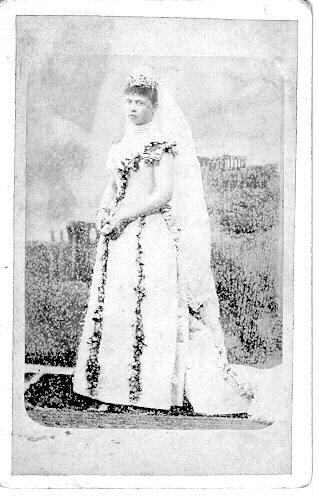- Joined
- Aug 13, 2004
- Messages
- 27,047
- City
- São Paulo
- Country
- Brazil
King Constantine I of the Hellenes (Athens, 2 August 1868 - Palermo, 11 January 1923); married in Athens on 27 October 1889 Princess Sophie Dorothea Ulrike Alice of Prussia (Potsdam, 14 June 1870 - Frankfurt, 13 January 1932)
Reign: 1913 - 1917 and 1920-1922
Dynasty: Schleswig-Holstein-Sonderburg-Glücksburg
Predecessor: King George I of the Hellenes
Successor: King Alexander I of the Hellenes (1917) and King George II of the Hellenes (1922)
Children: King George II of the Hellenes; King Alexander I of the Hellenes; Queen Helen of Romania; King Paul of the Hellenes; Princess Irene of Italy, Duchess of Aosta, titular Queen of Croatia; and Princess Katharina of Greece & Denmark, Mrs. Brandram
Parents Constantine: King George I of Greece and Grand Duchess Olga Constantinova of Russia
Parents Sophie: Emperor Friedrich III of Germany, King of Prussia and Princess Victoria Adelaide of Great Britain & Ireland, Princess Royal
Siblings Constantine: Prince George of Greece & Denmark; Grand Duchess Alexandra Georgievna of Russia; Prince Nicholas of Greece & Denmark; Grand Duchess Maria Georgievna of Russia; Princess Olga of Greece & Denmark; Prince Andrew of Greece & Denmark and Prince Christopher of Greece & Denmark
Siblings Sophie: Emperor Wilhelm II of the Germans, King of Prussia; Duchess Charlotte of Saxe-Meiningen; Prince Heinrich of Prussia; Prince Sigismund of Prussia; Princess Viktoria of Schaumburg-Lippe; Prince Waldemar of Prussia and Landgravine Margarethe of Hesse-Kassel
Reign: 1913 - 1917 and 1920-1922
Dynasty: Schleswig-Holstein-Sonderburg-Glücksburg
Predecessor: King George I of the Hellenes
Successor: King Alexander I of the Hellenes (1917) and King George II of the Hellenes (1922)
Children: King George II of the Hellenes; King Alexander I of the Hellenes; Queen Helen of Romania; King Paul of the Hellenes; Princess Irene of Italy, Duchess of Aosta, titular Queen of Croatia; and Princess Katharina of Greece & Denmark, Mrs. Brandram
Parents Constantine: King George I of Greece and Grand Duchess Olga Constantinova of Russia
Parents Sophie: Emperor Friedrich III of Germany, King of Prussia and Princess Victoria Adelaide of Great Britain & Ireland, Princess Royal
Siblings Constantine: Prince George of Greece & Denmark; Grand Duchess Alexandra Georgievna of Russia; Prince Nicholas of Greece & Denmark; Grand Duchess Maria Georgievna of Russia; Princess Olga of Greece & Denmark; Prince Andrew of Greece & Denmark and Prince Christopher of Greece & Denmark
Siblings Sophie: Emperor Wilhelm II of the Germans, King of Prussia; Duchess Charlotte of Saxe-Meiningen; Prince Heinrich of Prussia; Prince Sigismund of Prussia; Princess Viktoria of Schaumburg-Lippe; Prince Waldemar of Prussia and Landgravine Margarethe of Hesse-Kassel
Last edited:




